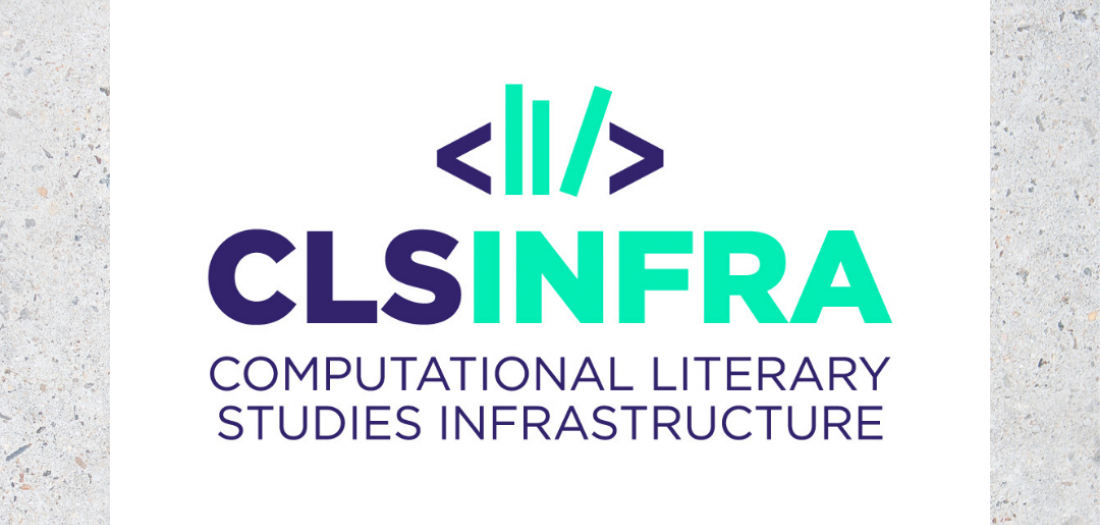CLS INFRA-Fellowship Report
by Maria-Corina Dimitriu
13.11.2024 | Allgemein, Wissenschaftlicher Austausch

„I applied for a fellowship at the Trier Center for Digital Humanities (University of Trier) within the CLS Infra Fellowship Programme at the recommendation of one of my teachers, Roxana Patraș, who had also been to Trier within the same grant. At that point, I had just started to develop an interest in stylometry and was an absolute beginner. Nevertheless, I was impressed by the consistent and notable activity of this research center in the field of Digital Humanities.
I was using the StyloR package due to its intuitive interface, but I felt more like playing with the program than doing proper research. While searching for papers that would help me learn more about StyloR, I discovered that it had been very little used on my mother tongue, Romanian, and this is how I got the idea of systematically testing its performance on the Romanian language, which was not even among the language options of the program. I wanted to see if there are certain combinations of parameters that work best on my language or ways to enhance the effectiveness of stylometric analysis directed towards specific goals, such as authorship attribution or subgenre categorisation. Therefore, I applied for a fellowship with the project named “Parametrization Guidelines in StyloR for the Romanian Language”.
Although I received only eleven funded days, I can surely say now, at the end of my fellowship, that I made the most out of this apparently short period and that I am myself impressed by how much it broadened my perspectives. When I came to Trier, I had a lot of questions but did not know where to start or how exactly I could implement my ideas. Likewise, I was not even considering leaving the graphical user interface aside and writing code by myself. Now, despite still having a lot of questions, I feel more systematic in the way I approach them, and I am no longer afraid of exploring different digital resources that may make my work more efficient.
My actual work at TCDH consisted of doing several tests on a corpus of 100 Romanian popular novels, with the overarching aim of finding the most effective combinations of parameters for authorship attribution, as well as some information about the potential authors of five novels written by anonymous authors. While trying to get better and better results, I also managed to create some useful instruments that would help me not only in this particular project, but also in the long run: a stopwords list comprising all the Romanian pronouns, an algorithm for applying this list and a loop-based algorithm that allows me to run multiple tests at once. Whereas I am aware that I still have a lot more to learn, I am also keen on sharing my results, aiming to encourage more young researchers from my country to use StyloR. I have already signed up for a conference in Romania with a project on authorship attribution and I also intend to write to the main developer of the StyloR package and see what exactly must be done to have Romanian among the language options of the program.
The promising results that I have got so far and my determination to keep going with my research in stylometry would not have been possible without the amazing academic community at TCDH. Conducting my research in an environment where everyone was enthusiastically working on a project in Digital Humanities was a new and valuable experience for me, since there is no such center in my academic community. Everybody was very friendly, communicative and eager to share their findings, so I also had very profitable academic discussions during my stay. Likewise, my research fellows were genuinely interested in my project and gave me very useful advice from their own experiences with similar projects.
I am particularly grateful for the warm welcome and for all the guidance I have received from my mentor, Prof. Christof Schöch, who told me how I had to approach each step of my project, but, at the same time, left me the exact space that I needed to develop my own ideas and research autonomy. Communication with him was always professional and efficient and, beyond helping me with the particular challenges of my research, he showed and sent me many other useful resources. He also helped me set my research goals for the following period and offered to keep in touch with my research in stylometry and continue giving me feedback and advice.
Last but not least, as an MA student who does not study Digital Humanities at the university (because, unfortunately, there is no such programme at the university center that I come from), I really enjoyed attending some of my mentor’s introductory lectures on Linked Open Data. I found it very productive for students to be able to choose their own datasets and work on them under the personalized guidance of the professor. Likewise, it was very useful to see how scientific papers were approached within lectures and I will certainly continue to use the research questions that Prof. Schöch proposed as a study instrument for my own areas of interest. In the end, my fellowship was not only about narrow readings on my project, but also about meeting new people, discovering new tools and learning from probably one of the most developed academic communities in the world in the field of Digital Humanities. My first international research experience was definitely a turning point in my academic life, and I really hope I will be able to come to Trier again with future projects.”

